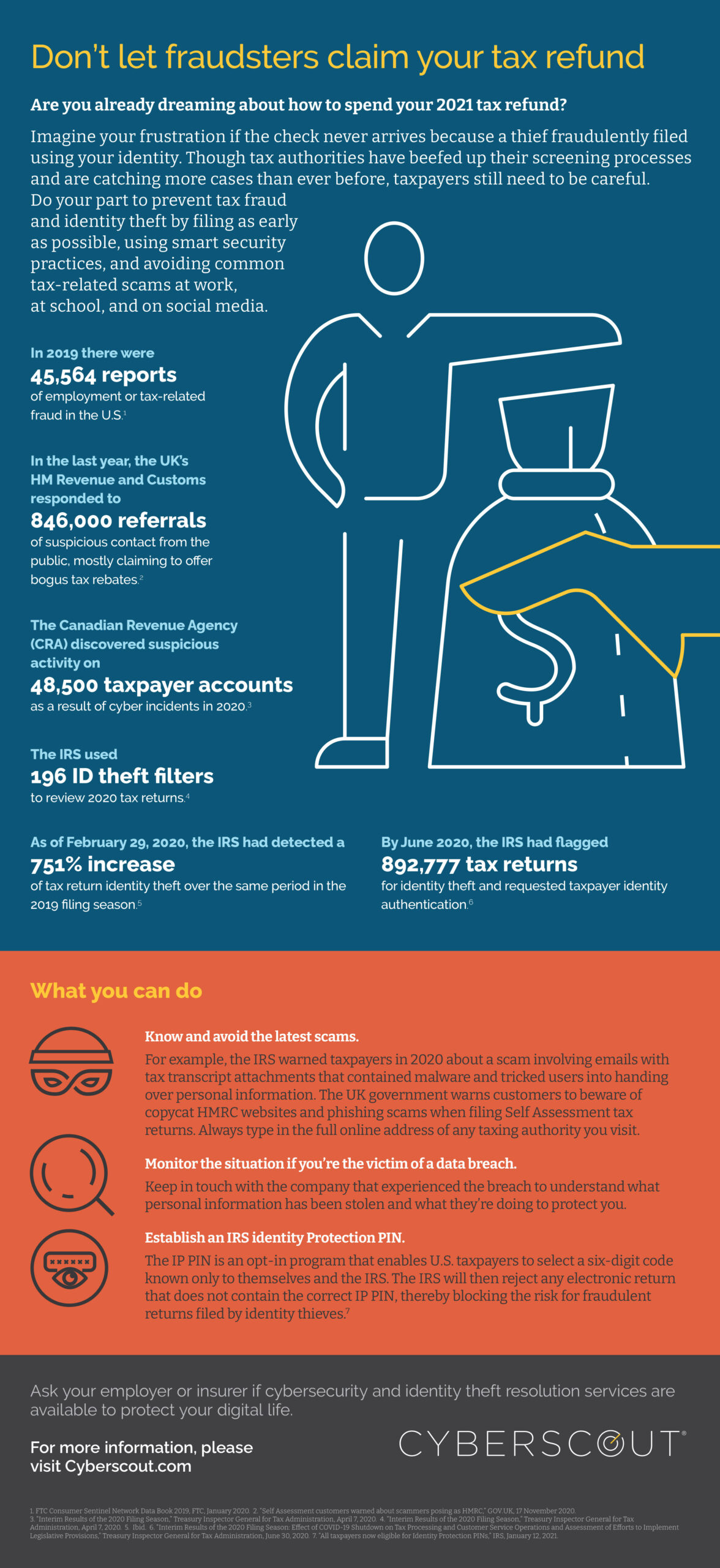Hundreds of thousands of taxpayers around the world become victims of tax refund fraud each year.
Here are a few warning signs someone else may be filing a false return using your identity:
- You attempt to file your tax return, but the IRS, CRA or HM Revenue & Customs reject it because a return already has been filed.
- Receive a letter from your taxing authority saying they received reports of more income than you reported.
- Receive a letter from your taxing authority asking you to verify your identity.
To reduce your risk of tax refund fraud, answer these questions:
- Has your information ever been exposed in a corporate data breach?
This is the best deterrent against tax return fraud. As soon as you have the necessary information from your employer, financial institutions, and tax authorities, complete your return and file it electronically. - How good is your recordkeeping?
When your own records are impeccable, it is more difficult for scammers to confuse you. Verify income statements reported to the taxing authorities for accuracy. Develop a good system for sorting receipts, bank statements, employer forms, and other information you need for tax preparation. Keep a file of all correspondence with taxing authorities. - Are you following good security practices?
Store prior year returns on a secure, password-protected external hard drive. Shred bills, mail or files with sensitive information prior to disposal. - Are you monitoring and avoiding tax scams and phishing emails?
In the past year, tax authorities have received more reports of scammers posing as tax agents. - Are you protecting yourself with credit and identity monitoring services?
Using a credit and identity monitoring service can alert you earlier to potential identity theft and fraud. If you ever become a victim of identity theft, make sure to inform your financial institutions, credit reporting agencies, and your local, state or national taxing authorities.





